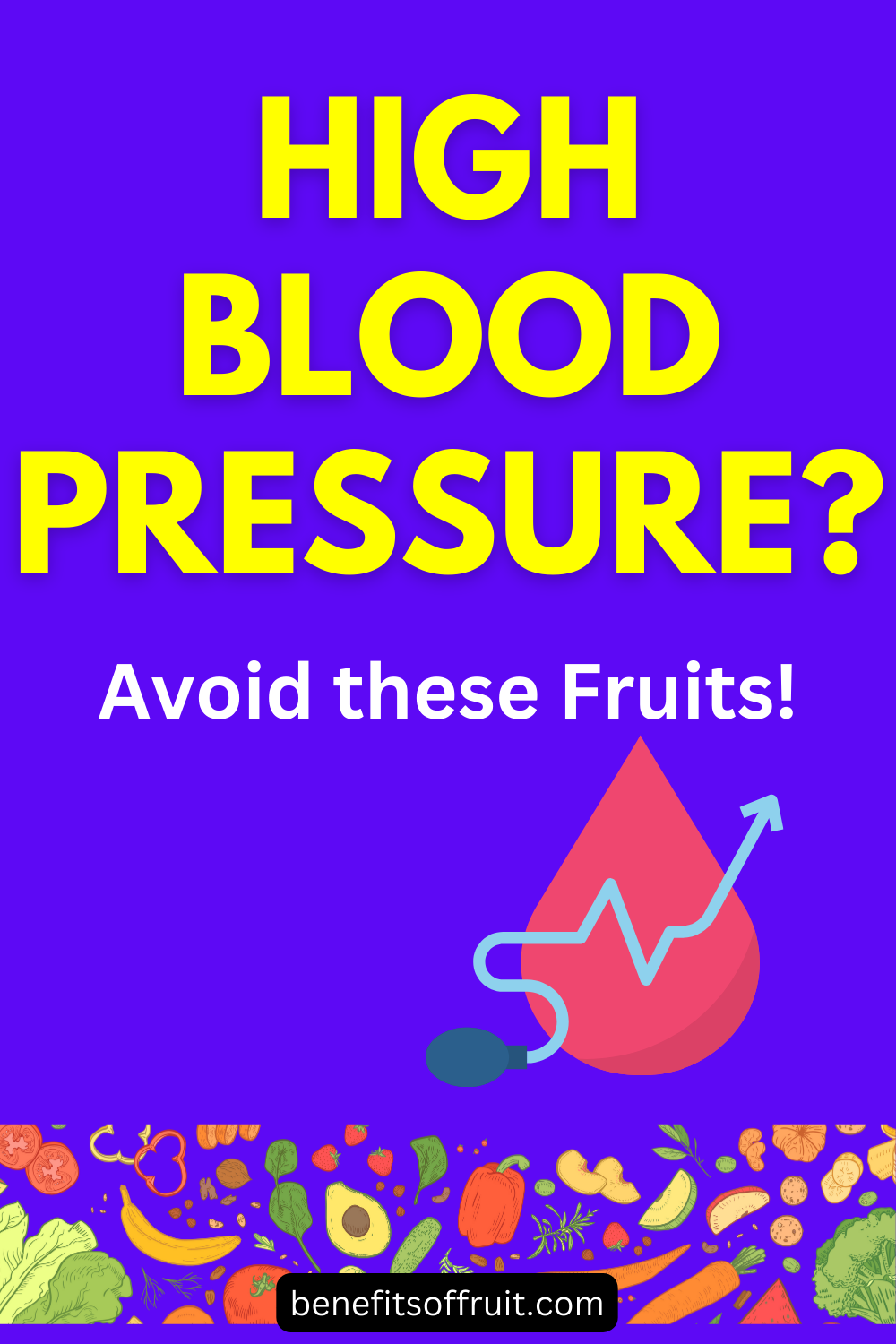High blood pressure, or hypertension, is a common health condition that affects millions worldwide. It’s a serious concern because it can lead to heart disease, stroke, and other complications if left unmanaged. However, one of the most effective ways to control blood pressure is through diet. In this article, we’ll explore the role of fruits in managing high blood pressure and highlight which fruits are best to include and which ones to consume in moderation or avoid altogether.
Best Fruits for High Blood Pressure
1. Berries
Berries, such as blueberries and strawberries, are nutritional powerhouses packed with antioxidants, vitamins, and fiber. Blueberries, in particular, are known for their heart-healthy properties and their ability to support lower blood pressure levels. Strawberries, on the other hand, boast high levels of vitamin C and potassium, both of which are beneficial for cardiovascular health.
2. Citrus Fruits
Oranges and grapefruits are citrus fruits that deserve a place in a high blood pressure-friendly diet. Oranges are rich in vitamin C and potassium, essential nutrients that help regulate blood pressure. Similarly, grapefruits contain antioxidants and fiber, making them a smart choice for maintaining heart health and controlling blood pressure.
3. Bananas
Bananas are a convenient and nutritious snack for individuals with high blood pressure. They are an excellent source of potassium, a mineral that plays a crucial role in balancing sodium levels in the body. Consuming potassium-rich foods like bananas can help counteract the negative effects of sodium on blood pressure and promote overall cardiovascular health.
Moderation is Key: Fruits to Consume in Limited Quantities
1. Pineapples
While pineapples offer some potential benefits for blood pressure management, such as the presence of bromelain, a compound that may have blood pressure-lowering effects, they should be consumed in moderation. Pineapples are naturally high in sugar, so it’s essential to be mindful of portion sizes to avoid consuming excessive amounts of sugar, which can negatively impact blood pressure levels.
2. Mangoes
Mangoes are delicious and nutritious fruits that provide a host of vitamins and minerals. However, due to their high sugar content, they should be enjoyed in moderation, especially by individuals with high blood pressure. While they offer health benefits, it’s important not to overindulge to prevent spikes in blood sugar levels.
3. Grapes
Grapes contain resveratrol, a natural compound that may have protective effects on the heart and blood vessels. However, they are also high in natural sugars, so it’s wise to limit their consumption, particularly for those watching their blood pressure. Enjoy grapes as part of a balanced diet, but be mindful of portion sizes to prevent excessive sugar intake.
Fruits to Avoid or Limit for High Blood Pressure
1. Canned Fruit in Syrup
Canned fruits in syrup may seem like a convenient option, but they often contain high amounts of added sugars and sodium, which can be detrimental to blood pressure levels. Opt for fresh or frozen fruits instead, as they are lower in sugar and sodium and retain more of their natural nutrients.
2. Dried Fruits
Dried fruits are a concentrated source of natural sugars and calories, making them less than ideal for individuals with high blood pressure. While they offer some nutritional benefits, such as fiber and vitamins, they can lead to spikes in blood sugar levels if consumed in excess. Enjoy dried fruits sparingly and opt for fresh fruits whenever possible.
3. Fruit Juices
Fruit juices may seem like a healthy choice, but they lack the fiber found in whole fruits and can be high in added sugars. Without the fiber to slow down sugar absorption, fruit juices can cause rapid spikes in blood sugar levels, which is not ideal for individuals with high blood pressure. Choose whole fruits over fruit juices to reap the full nutritional benefits without the added sugars.

Conclusion
Incorporating a variety of fruits into your diet is essential for managing high blood pressure and promoting overall health. By choosing the right fruits and consuming them in moderation, you can support healthy blood pressure levels and reduce your risk of cardiovascular disease. Remember to prioritize fresh, whole fruits over processed or sugary alternatives for optimal health benefits.